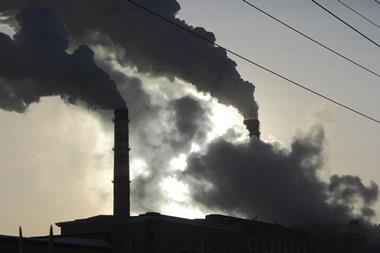Growers have joined the clamour for better returns from their customers in the face of soaring energy bills.
Parts of the British horticulture sector are facing oblivion, it is claimed, if multiples do not pay more for fresh produce to offset gas bills that in some cases have risen 100% in the past year.
Swingeing hikes in energy prices have hit growers hardest in the protected sector - those growing under cover.
They are substantial users of energy, which is their biggest single overhead, with bills running into hundreds of thousands of pounds a year.
National Farmers’ Union horticulture adviser Chris Hartfield said such dramatic energy cost increases posed a
serious threat to growers’ futures. “If people want British cucumbers, peppers and tomatoes, then things need to change. Otherwise people will not be able to afford to grow them. It’s as simple as that.” Hartfield said growers negotiated contracts with their energy suppliers on an individual basis, which meant costs varied from farm to farm. But some growers were reporting that their energy suppliers were imposing cost increases almost daily as raw material costs rocketed.
NFU horticulture board chairman Richard Hirst said producers were doing all they could to minimise the impact of the increases. “Growers are taking huge steps to conserve energy already, and we are looking at further ways to cut costs, but these increases do pose serious questions. For some businesses it could prove unprofitable to grow crops this winter.”
The call from the horticultural sector echoes those made in recent months by others in the food industry. Earlier this year, dairy farmers and suppliers won a price increase worth 2p per pint at retail level. Meat processors are asking for a 7% increase in the price of meat to cover rising costs.
Richard Clarke
Parts of the British horticulture sector are facing oblivion, it is claimed, if multiples do not pay more for fresh produce to offset gas bills that in some cases have risen 100% in the past year.
Swingeing hikes in energy prices have hit growers hardest in the protected sector - those growing under cover.
They are substantial users of energy, which is their biggest single overhead, with bills running into hundreds of thousands of pounds a year.
National Farmers’ Union horticulture adviser Chris Hartfield said such dramatic energy cost increases posed a
serious threat to growers’ futures. “If people want British cucumbers, peppers and tomatoes, then things need to change. Otherwise people will not be able to afford to grow them. It’s as simple as that.” Hartfield said growers negotiated contracts with their energy suppliers on an individual basis, which meant costs varied from farm to farm. But some growers were reporting that their energy suppliers were imposing cost increases almost daily as raw material costs rocketed.
NFU horticulture board chairman Richard Hirst said producers were doing all they could to minimise the impact of the increases. “Growers are taking huge steps to conserve energy already, and we are looking at further ways to cut costs, but these increases do pose serious questions. For some businesses it could prove unprofitable to grow crops this winter.”
The call from the horticultural sector echoes those made in recent months by others in the food industry. Earlier this year, dairy farmers and suppliers won a price increase worth 2p per pint at retail level. Meat processors are asking for a 7% increase in the price of meat to cover rising costs.
Richard Clarke
















No comments yet